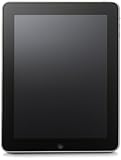
With any technology, it is important to understand why people use it and what purpose it serves in their lives. Certainly, there are wealthy consumers who will buy anything that glitters, but a larger portion of the world’s population can only afford functionality. They will choose the new car that can hold their two children over one that can play their Mp3’s. Ultimately, people will look for a balance between practicality and fun features.
One possible scenario in which tablets take over would involve other companies, Apple competitors, producing tablets running Android, Windows 7, or other operating systems, and selling them at lower prices. That scenario would mimic the PC and laptop market, where Apple holds a slim percentage of the overall sales.
Even in such a situation, however, there still must be some practical value for tablets. One should not forget that tablets are not new. The main differences between the iPad and previous tablets are the portability, functionality, and style of the operating system. Therefore, the real question one must ask is: Does the iPad have features that can replace the features of a laptop? Consider these factors:

2. Internet connectivity – The iPad and some other emerging tablets have built-in support for 3G wireless and Wi-Fi, giving them more out of the box support for connectivity than a traditional laptop. According to server hosting company 34SP.com, an iPad would come in handy for tasks such as remotely monitoring a server.
3. Applications – An iPad offers the same apps available for an iPhone, plus additional apps built specifically for the larger device, but this is still severely limited. Other tablets, especially those running Windows 7, a version of Linux, or other full-featured OS, will have access to all of the applications available for a PC or laptop.
4. Functionality – This is where tablets run into trouble. People who put their laptops to work may use four USB ports at one time, a keyboard for typing, and possibly an additional monitor for larger display. To get this functionality out of a tablet requires additional peripherals. As a writer, for example, I would certainly not attempt to punch out 10,000 words a month on an iPad screen, and carrying around a keyboard would not be practical. Many other professions also require the use of a full-size keyboard and a decent screen size.
5. Multimedia – Tablets can play videos, music, and any other types of media that laptops can play. Many also use their tablets for games. Furthermore, the ability to rotate the screen makes certain media easier to use and watch on a tablet.
Ultimately, tablets will undoubtedly have a place in the lives of many people, but that place will still be secondary to computers with actual keyboards, as long as typing is still the main method of input. That means that netbook sales might take a hit, but laptops and PC will stick around for some time. For people who only use their laptops to surf the web, watch TV shows, and maybe send a few emails, their tablet may have already replaced their laptop. Like any other device, tablets will fill specific needs, but those needs will not be universal.
